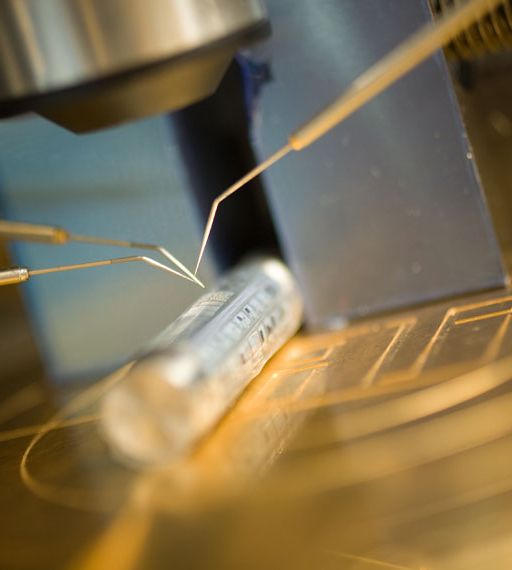Electrical engineers who graduate from Lehigh University are innovators who go on to design operating room equipment; control airplanes; missiles, and satellites; create faster ways for computers and individuals to communicate; make vehicles faster and safer; and create and control new renewable sources of energy. They use nanoelectronics, tiny computer chips and photonic devices to harness clean, alternative sources of energy, create biomedical instrumentation that saves lives, and develop sensor networks that protect the environment and improve quality of life. They provide the technological leadership to solve tomorrow's societal problems.
Lehigh's electrical engineering program challenges the brightest and most accomplished students, providing them with the tools necessary to solve complex problems in technology-related fields and also medicine, finance, law and government. A solid foundation in how to think and how to solve multidisciplinary problems using mathematics, science and engineering prepares the Lehigh electrical engineer to excel in almost any career.
Why Electrical Engineering?
-
Because you want to spend your days designing operating room equipment; controlling airplanes; missiles and satellites; creating faster ways for computers and individuals to communicate; making vehicles faster and safer; creating and controlling new renewable sources of energy; and innovating solutions to the latest challenges confronting mankind
-
Because you want to use your hands and your creativity to solve problems
-
Because you find things like circuit boards and electronics fascinating—you want to understand how they work and how to make them better
What sets us apart?
Lehigh's program covers a broad set of specialties and offers numerous opportunities for engineering design and hands-on learning experience. Students receive multidisciplinary training and learn analytical thinking skills, which they can apply to problems in circuit design, electronic and optical components, sensors, biomedical devices and diverse systems, including microelectronic, control, information, computer and communication systems. They are prepared to meet the challenges in this rapidly evolving field by mastering electrical engineering fundamentals, creative problem-solving skills and newly emerging technologies and their applications.
The program is founded upon a faculty of gifted researchers who make teaching a priority, and it provides dynamic opportunities for students to work on research projects with professors and engineering professionals. Students work alongside talented faculty who lead cutting-edge research efforts in nanotechnology, optoelectronics, fiber optics, flexible displays, microelectronics fabrication, bioengineering, information and communications technology, wireless networking, signal processing and image compression.
World-class laboratory facilities across Lehigh's campus, especially in microelectronics, photonics, electromagnetics and information processing, allow students to become familiar with all facets of the electrical engineering discipline.

